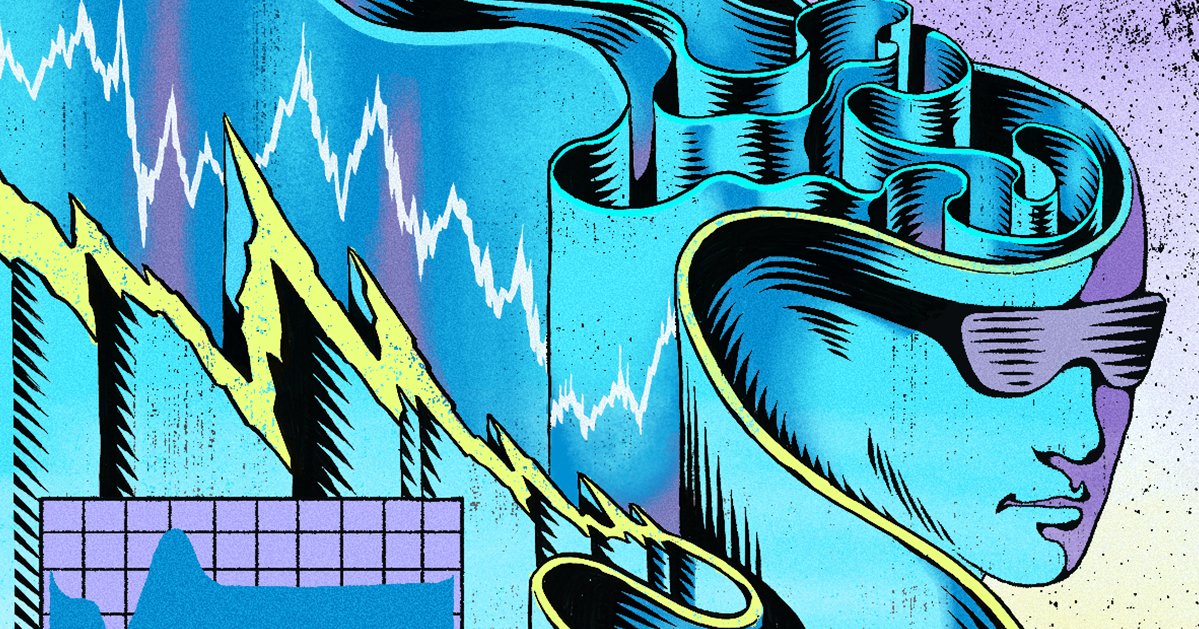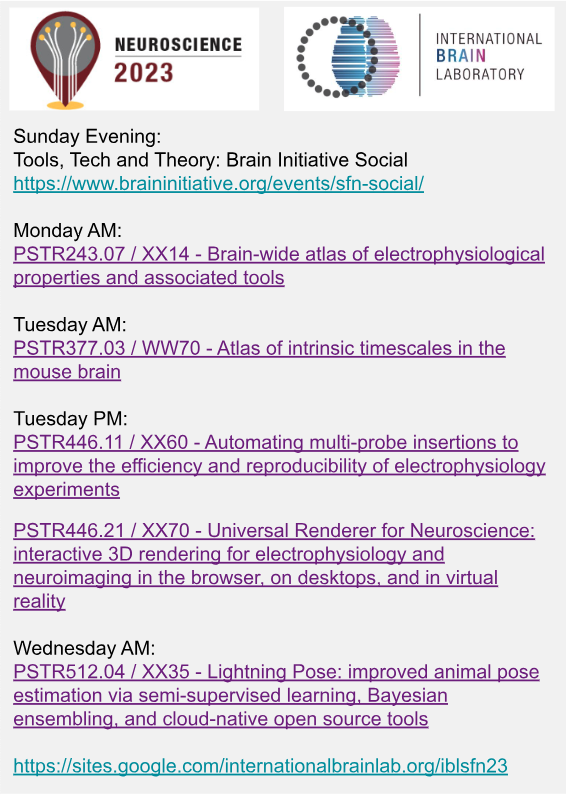
International Brain Laboratory
@IntlBrainLab
Experimental & theoretical neuroscientists collaborating to understand brainwide circuits for complex behavior. Mastodon: @[email protected]
The IBL has improved its spike sorting methods and is in the process of re-running its latest algorithm version on 1000+ insertions. The new algorithm yields more good units, and resolves the “spike hole” issue.
Scientists need engineers. How can we foster career growth and retention of these highly skilled staff? Read our opinion piece here: thetransmitter.org/craft-and-care…

Hear directly from our amazing team members: A conversation with research software engineers at the International Brain Laboratory: Patterns cell.com/patterns/fullt…

Excited to announce the Foundation Models for the Brain and Body workshop at #NeurIPS2025!🧠 We invite short papers or interactive demos on AI for neural, physiological or behavioral data. Submit by Aug 22 👉 brainbodyfm-workshop.github.io
Thrilled to share our state-of-the-art method for in vivo cell-type classification and brain region localization, NEMO, which is now now a spotlight at #ICLR2025! We use NEMO to characterize the electrophysiological diversity of cell-types across the entire mouse brain. 🐭 🧠
Another step toward a foundation model of the mouse brain: "Neural Encoding and Decoding at Scale (NEDS)" Trained on neural and behavioral data from 70+ mice, NEDS achieves state-of-the-art prediction of behavior (decoding) and neural responses (encoding) on held-out animals.
Check out our new tutorial series to learn how to use the Lightning Pose app, on a local workstation or in the cloud. We start from the basics and work up to advanced topics like deep ensembling and active learning: shorturl.at/jbxhd

Come work with us! IBL is looking for a research software engineer to join our team! Learn more and apply here: drive.google.com/file/d/11jgmO0…
Now officially accepted as a poster at NeurIPS 2024!
What will a foundation model for the brain look like? We argue that it must be able to solve a diverse set of tasks across multiple brain regions and animals. Check out our preprint where we introduce a multi-region, multi-animal, multi-task model (MtM): arxiv.org/abs/2407.14668
Register for this course to learn more about Neuropixels and a chance to dig into the brainwide map data set!
Day 1 and 2 (14-15 October 2024) cover the basics, with a new perspective from the International Brain Laboratory. Day 3 (16 October 2024) does a deep dive on 3 hot topics: an outlook on Neuropixels technology, recordings across species, and the IBL brainwide map.
Neural activity is correlated among animals performing the same task and across sequential trials. Led by @zhang_yizi and @hl3616, we develop an reduced-rank model that exploits shared structure across animals to improve neural decoding. biorxiv.org/content/10.110…
Lightning Pose is an efficient pose estimation approach that requires few labeled training data owing to its semi-supervised learning strategy and ensembling. @dan_biderman @cu_neurotheory @ZuckermanBrain @IntlBrainLab @Columbia nature.com/articles/s4159…
Come work with us!
The Paninski Lab is seeking a research software engineer to work with computational and experimental neuroscience labs at the Zuckerman Institute and International Brain Lab to develop cutting edge tools for analyzing behavioral video data: apply.interfolio.com/147471
I found the main bug and fixed it (see new releases). This affects versions 2.5 and 3. Thanks to the @IntlBrainLab for finding this problem. Good time to upgrade to Kilosort4 :) ? The #pytorch implementation should be immune from such issues. #kilosort github.com/MouseLand/Kilo…
There's a bug in Kilosort 🚨 The @IntlBrainLab found spike holes: every 2s no spikes are detected for 7 ms. Although it's a small fraction of data (0.3%), it's good to be aware of this issue. Also consider rerunning spike sorting after it's been resolved. github.com/MouseLand/Kilo…
Come see us at #SfN23 #SfN2023 #SFN sites.google.com/internationalb…

Going to SfN this year? Join us for a workshop on how to use our Brainwide Map dataset to test your own hypotheses! For more information and to register, visit internationalbrainlab.org/sfn2023